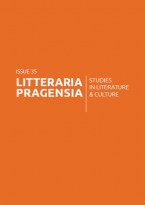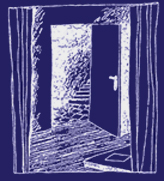
|
18.35 Transcultural ExpressEdited by: Martin Procházka Volume: 18 Issue: 35 July 2008 |
Contents
|
Martin Procházka
Introduction
|
1 |
|
M. L. Donnelly
Humanist Imperialism of Moral and Cultural Superiority in Spenser's A View of the Present State of Ireland
show abstract
Since The Faerie Queene and virtually all
his other poetic works suggest characterizing Spenser as a humanist public poet
of a strongly idealizing bent, A View of the Present State of Ireland has
long seemed anomalous. Nevertheless, what justifies its application of
instrumental reason to root out barbarism and disorder and impose order and
civility is humanist right reason. An ultimately Platonic analogy provides the
framework of Spenser's argument: the physician whose thorough case history
determines the appropriate measures to eradicate the pathology he has
identified. A View of the Present State of Ireland is in its author's
eyes the regimen for a cure. The state of health to be obtained is the
achievement or imposition of "civility" - a word that recurs throughout the
dialogue. Spenser draws on his own memory of events and policy errors in
Ireland and on history to support a penetrating analysis of the causes of the
pathology he detects in the social, economic, and cultural relations prevailing
in Ireland. On this basis, Spenser proposes a plan of ruthless reduction of the
country by the sword and by famine, to be followed by application of practices
that would enable the colonial power to erase completely the memory of those
social, economic, and cultural relations and practices, all for the good of the
patient. It is a chillingly modern design in what it proposes, but the cool
assurance of righteousness of purpose that justifies it can be traced directly
to the exaltation of an absolute moral hierarchy of rational and useful values
that drove humanist idealism.
|
5 |
|
Kateřina Kolářová
Epistemologies and Practices of the ("Aberrant") Self: John Addington Symonds' Discursive Struggles with the "Truth About Himself"
show abstract
The article (re)reads the late nineteenth-century
autobiography of John Addington Symonds. Its core ambition is to challenge the
often simplistic readings of Symonds's Memoirs as a prototypical gay 'coming-out' story. The Memoirs are read as a performative process and a 'practice of the self' which reveals both the variety of codes used in
referring to illicit sexuality in the particular historical period, as well as
the growing authority of sexological discourse. The central argument of the
article is based upon examining intersections of the epistemology of sex and
the practice/technology of the self. Nevertheless, in contrast to the existing
research on Symonds and his homoerotic desire, the present text goes back to the
original manuscript in order to provide a more nuanced discussion as well as to
accentuate the agency of the autobiographic subject. It also raises urgent
questions concerning theoretical and ethical issues in the research of queer
subjects. Regarding the former point, the original manuscript is compared with
the version edited in 1984 to show the extent to which the edited text is both
informed with the epistemology of sex and dedicated to reproducing the
stereotype of the 'homosexual.'
|
28 |
|
Richard Olehla
The Quest for the Holy Word: Lacan's Name-of-the-Father, Paranoia and Possible Madness in The Crying of Lot 49
show abstract
In his Seminars, Jacques Lacan states that paranoia
has its roots in the foreclosure of the ultimate meaning, the signifier of the
Other. For Leo Bersani, paranoia is "something like unfounded suspicions about
a hostile environment." Oedipa Maas from The Crying of Lot 49 loses her
initial knowledge of the world and goes through paranoid searching to finally
change the knowledge of the world to a mere acknowledgement of its existence.
In Gravity's Rainbow, Tyrone Slothrop "paranoids from door to door" in a
hotel. This article explores what makes Pynchon's characters paranoid, by
providing an insight into Lacan's theory of the Name-of-the-Father and the
subsequent feeling of paranoia, which according to Fredric Jameson leaves the
paranoid with only "a series of pure and unrelated presents in time." How
important is the figure of the father in Pynchon's novels: Pierce Inverarity in The Crying of Lot 49
and Laszlo Jamf in Gravity's Rainbow? Can Pynchon's more or less real fathers of be
identified with Lacan's symbolic father? Can they represent meaning for others,
the Word? Apart from these problems, different types of paranoia in Pynchon's
novels (paranoia in religion, cultural, linguistic and semiotic paranoia) are discussed,
and the question of whether Pynchon's characters should be called paranoid or
schizophrenic is addressed.
|
58 |
|
Monika Reif-Huelser
Transcultural Imagination: Wilson Harris's Novel The Palace of the Peacock and the Theatre of Memory
show abstract
The article deals with Wilson Harris's concept of "radical" or "unfinished genesis of imagination" and its role as transmitter of knowledge. Taking the indigenous cultures of the Caribbean Islands as his paradigm, Wilson Harris argues for the indissoluble co-presence of past and present, Self and Other, land and water, body and spirit - emerging through the transgressive workings of imagination. The temporal and spatial partitions, which we use as heuristic means of orientation, reduce the possibilities of knowledge by limiting the frames of experience. With the image of the rhizome Gilles Deleuze and Félix Guattari offered a verbal tool to describe and analyse Harris's aesthetic project of radical imagination through which we gain access to those dimensions of reality which otherwise are hidden from physical experience. |
77 |
|
Review of
Zdeněk Stříbrný
The Whirligig of Time: Essays on Shakespeare in Czechoslovakia
Ed. Lois Potter. Newark, N.J.: University of Delaware Press; Cranbury, N.J.: Associated University Presses, 2007. 258 pp.
→ Martin Procházka, "Techniques" and "Philosophies" of Time in Shakespeare's Plays and Individual Life
|
100 |


